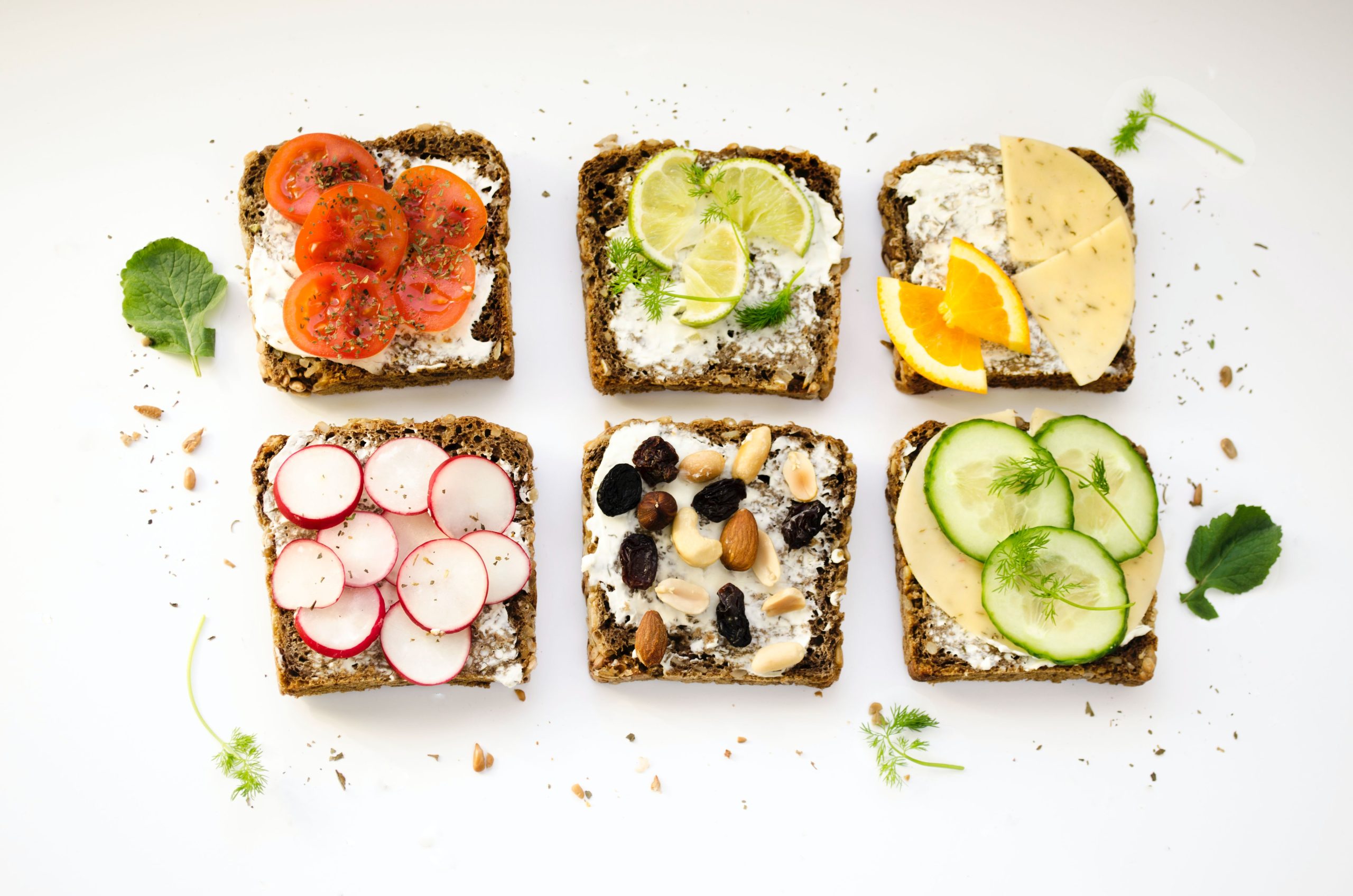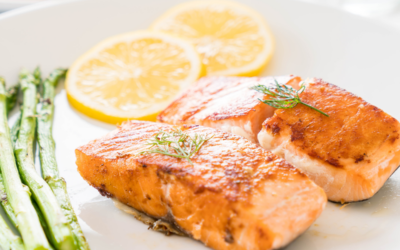As we progress through the Covid-19 pandemic, we’re learning more about how medicine, social distancing, wearing masks, and our nutrition habits determine Covid severity risk. One of the most important, and overlooked precautions we can take to lower our risk of severe infection is to eat healthier. While there are many factors we can’t control, we can control what we put in our bodies. In fact, more emphasis has been placed on nutritional health – researchers now recommend that hospitals focus patient nutrition. But from a community standpoint, food access has long been an issue for the underserved and needs to be addressed.
In this article we will discuss how your gut, metabolic health, and a healthy diet contributes to lowering your risk for severe COVID-19 infection.

Gut Health
Over the past few years, scientists have discovered that your general health is closely related to your gut health. Although COVID-19 is primarily a respiratory illness, we now know that it affects your body in all sorts of ways. Having a diverse and thriving gut influences your metabolic and immune response to Coronavirus. And there are many studies that have linked your gut microbiome to an increased risk of COVID-19.
Gut microbiome (or microbiota) is the collective trillions of bacteria, viruses, fungi, and other microorganisms that live in your body – primarily in your intestinal tract. These microorganisms are vital to your immune system, digestion, and distributing the necessary nutrients to your body. Not only that, but they also play an important role in metabolism, fighting infections, regulating your weight, improving mental health and mood, and more.
Just like there are microbiome that benefit your body and your health, there are also harmful bacteria. Many circumstances including sickness, anxiety, or stress can disrupt the balance of your gut’s microbiome, but one issue that affects it most is your diet and nutrition habits. However, there is not one right answer for everyone to maintain a healthy gut. Each individual is different and has a unique mix and make-up of microbiota. The best action you can take to learn more about your gut health is to consult a nutritionist or gastroenterologist educated on microbiome health.
Research shows that an unhealthy gut can be linked to certain diseases such as:
- Viruses and infection
- Multiple Sclerosis (MS)
- Diabetes
- Heart disease
- Obesity
- Asthma
- Cancer

Microbiome and Covid-19 Health
According to a study from BMJ journals, “Gut microbiome composition was significantly altered in patients with COVID-19 compared with non-COVID-19 individuals irrespective of whether patients had received medication.” This study further shows that inflammation of the microbiome in your gut could be related to continuing symptoms even after a person has recovered from COVID-19 (SARS-CoV-2).
It is already known and proven that a large number of patients with COVID-19 have GI symptoms, in addition to their other symptoms. According to The Scientist, “Since then, researchers have identified patterns in the makeup of gut bacteria—a state called ‘dysbiosis’ in which there is loss of diversity and beneficial bacteria but an increase in bad bacteria—that are associated with poorer outcomes and slower recovery from COVID-19.”
Effects of an Unhealthy Diet
When discussing diet, many people think of cutting out their favorite foods and implementing a strict regimen, usually to lose weight. When we attribute food to losing weight, it creates the unhealthy narrative that food is only purposeful for weight fluctuation. When in reality, food is vital to our overall health and immune system. Focusing too much on weight also leads to stigmatizing fat and overweight bodies instead of simply trying to be healthy.
There are warning signs that your diet may be negatively affecting your health. Some of these seemingly “invisible” illnesses are:
- High blood sugar (hyperglycemia)
- High blood pressure (hypertension)
- High cholesterol (hyperlipidemia)
What is a Healthy Diet
The foods you find at fast-food restaurants, or in most grocery aisles, are usually the ones that do not benefit your health. The typical Western diet includes foods that are processed and high in:
- Salt (bread, chips, crackers, pizza, cured meats)
- Refined sugar and flours (high fructose corn syrup, cookies, pastries, bread, pasta)
- Saturated trans-fats (bacon, cheese, cakes, butter)
In order to boost your immune system and help your good bacteria to flourish, you will need a diet rich in the following:
- Whole fruits, grains, and vegetables
- Leafy greens
- Nuts and seeds
- Fish and lean meats
- Foods rich in probiotics (yogurt)
- Plenty of water for hydration
Top Vitamins for Health
Maybe you already take vitamins and supplements, but there are specific vitamins from nutritious food that boost your immune system to help prevent infection. Again, you should consult your doctor and have them run tests to find any deficiencies, prior to changing your nutrition. We really recommend getting the majority of your vitamins from nutritious foods rather than from supplements.
The list below is just some of vitamins from food that can be good to incorporate into your routine.
Vitamin D – Most people are deficient in Vitamin D, especially if you live in a place that gets little to no sunlight. Vitamin D supports your immune system and heart health. It helps your body absorb calcium, and as you will see listed below, calcium aids your body in building strong bones. Vitamin D also plays an important role in preventing disease.
Magnesium – This vitamin supports nerve and muscle function, heart health, and regulates glucose. It also helps prevent high blood pressure and reduce inflammation.
Vitamin B – Vitamin B turns food into energy and is necessary for cell development and growth. Vitamin B supports the body in fighting infection.
Vitamin C – Vitamin C helps your body absorb iron, boosts your immune system, and protects your cells. It supports heart and prenatal health as well.
Zinc – This mineral supports wound healing, aids in the function of your thyroid, and helps with proper blood clotting.

How to Introduce a Healthy Diet during the Pandemic
Maybe you read the latest trend of a food group that will give you instant results for your health. While some of these may work, starting slow by introducing healthy foods that you enjoy will be easier to maintain in the long run. For example, if you are strongly craving a donut, then you could try substituting that for some berries to curb your craving. Instead of never eating another donut (and then feeling guilty whenever you cave in), you can simply work on replacing something unhealthy that you like for something healthy that you also like.
You could also try keeping a food journal. It may seem tedious, but if you keep a detailed log, then you will be able to see what foods affect you most, and which ones you need to avoid. You can either use a journal or printable calendar (like the one below), or check out the app store.
Of course, it is okay for you to eat your favorite comfort foods sometimes, since healthy eating is all about moderation. However, it starts to become a problem when you use those foods as your source of comfort and that is easy to do, especially in the midst of a pandemic.
Living a Healthy Lifestyle
These days it probably feels like we have little control over what happens, and it feels like we never will. But as previously mentioned, you do have control over what you eat, and how you take care of yourself during the pandemic. Even if you make small changes daily, you will be surprised how much better you will feel over time.















